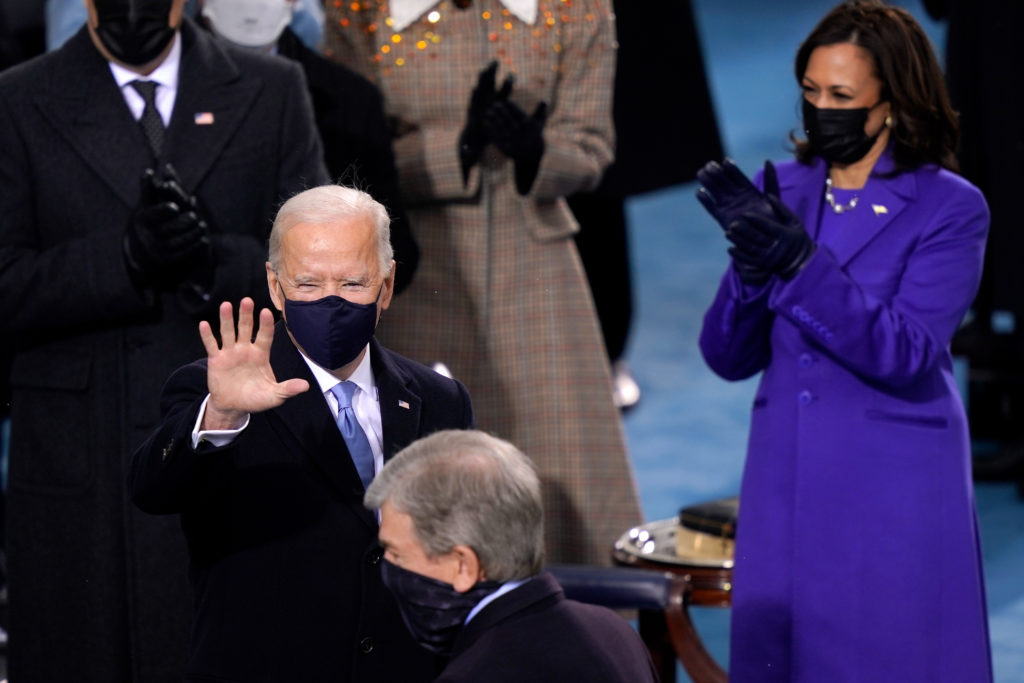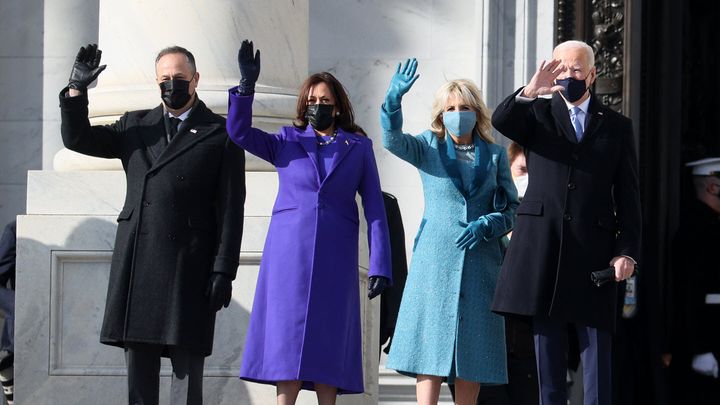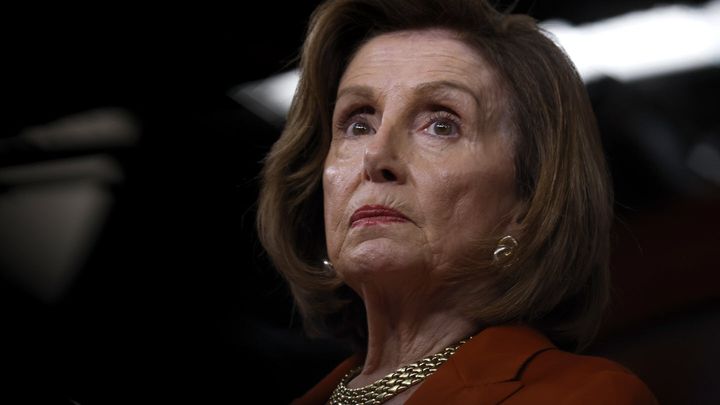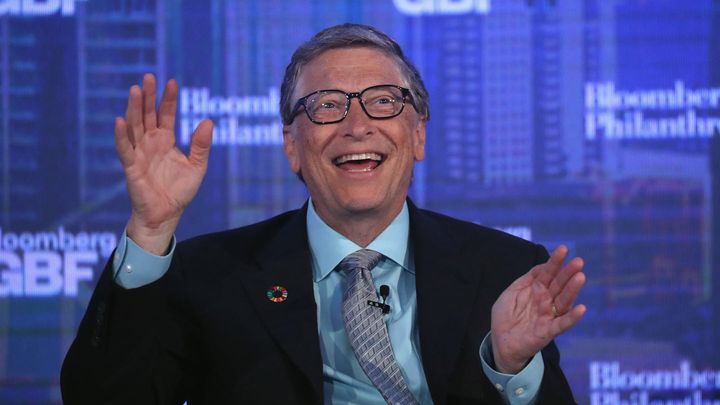Despite being held largely online, the inauguration events today around the swearing in of Joe Biden will be backed by millions of dollars in donations from corporate giants including Amazon, Boeing, and Comcast that have lobbying interests in front of the government.
By launching his White House tenure with an inauguration fundraising push, President-elect Biden pursued the same practice as his predecessors, who raised increasing amounts through their inaugural committees over the past decades. Trump’s 2017 bounty of $106.7 million doubled the previous record of Obama’s in 2009 without fully accounting for the money’s sources or uses, putting Trump’s inauguration committee in legal jeopardy with federal prosecutors.
Even though Biden’s inaugural fundraising follows a bipartisan tradition established by his predecessors, it runs counter to his own party’s landmark ethics proposal in H.R. 1. That bill, which congressional Democrats first proposed in 2019, would cap inaugural donations at $50,000 and require online disclosure of donors above $1,000 within 24 hours online.
Biden’s inaugural committee made some gestures toward ethics policies by capping business donations at $1 million and individual donations at $500,000, and by putting the names of its donors online, though not the amount or date of their gifts. Curiously, the Biden inaugural also barred donations from the PACs or executives of fossil fuel companies, which as journalist David Dayen pointed out last month begs the question: why are million-dollar checks from other major corporations acceptable for a mostly-virtual event?
The public will have to wait to see how much companies on the donor list like health insurance giant Anthem and Boeing chipped in to the Biden-Harris inauguration, which is being held without the usual inaugural balls or other large-scale events for which inaugural funds are typically used. Federal law does not require the disclosure of inaugural committee donors until 90 days after the proceedings. Some companies that told reporters they would be donating, including Ford and Bank of America, are not yet on the list.
H.R. 1 brings together campaign finance, ethics, and voting reforms in a sweeping package that in the previous Congress passed the Democratic-controlled House in March 2019 by a vote of 234-193, with no Republican support. If the bill becomes law, its inaugural donation cap and disclosure requirements would take effect for the 2028 presidential election cycle.
Government ethics expert Craig Holman of the progressive watchdog group Public Citizen tells Sludge that he worked with Rep. Kurt Schrader (D-Or.) and Sen. Cortez Masto (D-Nev.) in drafting the legislation and that Rep. John Sarbanes’ (D-Md.) staff included a version of it in H.R. 1 in the wake of Trump’s inauguration scandals, which are still under investigation.
The vast majority of Trump’s record-breaking haul came from 250 people or organizations, including 47 donors giving $1 million or more, according to the Center for Responsive Politics. Under H.R. 1, presidential inauguration committees would be required to disclose expenditures and would be disallowed from spending money raised on expenses outside the inauguration.
Facing intense opposition from congressional Republicans, who did not pick up H.R. 1 in the previous Congress, Senate Democrats will first move S. 1 through committee hearings before facing the dilemma of whether to apply new legislative rules that would overcome Republicans’ inevitable filibuster of the bill.

Trump’s reliance on Big Money donors had a recent precedent in the donors of Obama’s 2009 inauguration, when almost 80% of the $53 million raised came from 211 wealthy bundlers, according to a fact sheet from Public Citizen. Among the givers were several prominent Wall Street executives, such as Louis Susman, vice chairman of Citigroup Corporate, who reportedly raised $300,000. Obama’s 2009 committee, unlike Biden’s, prohibited contributions from corporations, PACs, and labor unions, and Obama’s 2013 committee saw a modest reduction in donations, at $45 million.
Previously, according to figures provided by Holman, the two inaugurations of George W. Bush rose from $30 million raised in 2001 to $42 million in 2005; before that, President Clinton’s festivities brought in $25 million in 1993 and $29 million in 1997. President Reagan’s 1985 event was paid for out of some $20 million raised, compared with $3.5 million by President Carter in 1977 and $4 million by President Nixon in 1973. Inaugural funding was not required to be disclosed until passage of the Bipartisan Campaign Reform Act of 2002.
Other Biden inaugural donors include software companies Microsoft and Qualcomm, cable company Charter Communications, the holding company of Enterprise Rent-A-Car, wealthy Democratic megadonors like hedge fund manager Donald Sussman and Sen. Dianne Feinstein’s husband Richard C. Blum, and several labor unions such as the American Federation of Teachers.
“Wealthy individuals and corporations generally do not give money to an inaugural committee because they want to ensure a glorious televised inauguration,” said Holman. “They give to endear the president and the inner circle.”
Over 50 government watchdogs groups called for Biden to reject all corporate donations in a Dec. 16 letter addressed to Tony Allen, head of the presidential inaugural committee and the president of Delaware State University. “While the fossil fuel industry is indeed pernicious and should not be afforded this opportunity to influence the nascent administration, other corporate interests must also be prevented from wielding undue influence,” the letter says. “We therefore urge you to expand your ban to encompass all major corporate sectors.”
For companies seeking to curry favor with the new administration, the potential federal government contracts are immense. During the Trump administration, Biden inaugural donors Amazon and Microsoft were locked in a battle for a $10 billion, 10-year JEDI contract to be awarded by the Department of Defense, one that went to Microsoft in October 2019 only to be mired in legal challenges by Amazon and complaints by Oracle. Amazon argued in a December 2019 complaint that Trump personally nixed their bid out of animus toward founder Jeff Bezos, who is also owner of the Washington Post.
In 2019, Boeing received the second-largest dollar amount of federal contracts of any company with over $23.6 billion, according to the nonpartisan Project On Government Oversight (POGO), having hired over 23 former senior officials from the Department of Defense. Boeing previously was among the $1 million donors to Trump’s inauguration. The aerospace company has been among the Hill’s top 10 spenders on federal lobbying since 1998, and after stock buybacks totaling $40 billion over the past nearly eight years, the company requested a $60 billion bailout in March 2020 as the coronavirus pandemic broke over the country.
Earlier this week, The Intercept and The American Prospect reported that Renata Hesse, a former Justice Department official in the Obama administration who later worked for inauguration donors Amazon and Google, is being considered by Biden to head the department’s antitrust division, a candidate that antimonopoly advocates oppose because of Hesse’s record of facilitating corporate consolidation.
Due to the Covid-19 pandemic, the traditional inauguration parade will be held virtually, with major donors bagging tickets to a future VIP event, VIP participation in a virtual concert, and virtual signed photos with Biden and Harris.
Read more coverage on Sludge:



